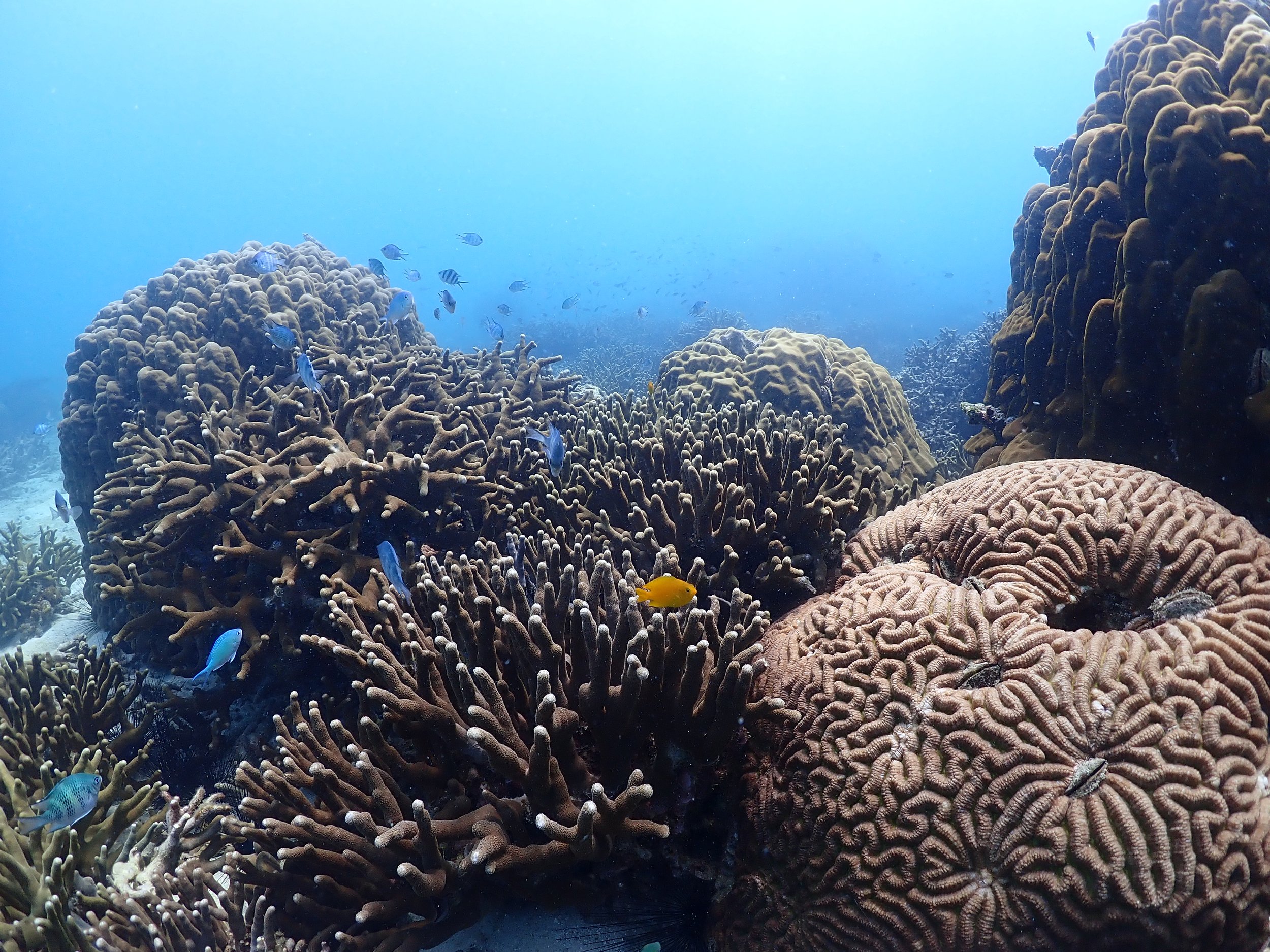Reef Check Malaysia held a UN Ocean Conference Side Event
I recently posted some thoughts about the UN Oceans Conference, which was held earlier this month in Nice, France. Not many people will know (until now!) that Reef Check Malaysia hosted a “side-event” webinar on what is – we believe – an important topic: how to get local communities involved in managing protected areas.
Below is a review of the event, including some findings that we think are worth sharing.
Regional Perspectives on Community-based Marine Resource Management
I’ve been working with a group in Thailand, Vietnam and Philippines for a little over three years now, to encourage governments to adopt Target 3 of the Global Biodiversity Framework (full disclosure: the work was funded by Pew Charitable Trusts through Pacific Environment). This target deals with the need to protect 30% of the world’s marine areas. This also links to Target 22, which calls for the participation of Indigenous Peoples and Local Communities in management, and this has become an important theme for the group.
So, we decided to host our own side-event to UNOC, to discuss this issue and try to extract some best practices that we could advocate for in each of our countries.
The title of the event, held on Wednesday 11th June, was "Community-based Marine Resource Management in Southeast Asia: Benefits, Challenges and Lessons from Four Countries.” A recording of the webinar, which attracted over 80 participants, can be found here.
The goal of the event was to examine the topic (community-based marine resource management) from the following perspectives:
Science - relevant research and what it says about community participation, and information gaps)
Policy/legal - what legislation, regulations and policies are in place, what gaps are there)
Community - how do communities see their role, what capacity, funding and legal recognition are required).
The objective was to develop consensus on some best practices in community-based resource management.
Scientific Perspectives on Community-based Marine Resource Management
Published research clearly supports the participation of local communities in marine resource management.
In Thailand, Community-Based Management has evolved over 20 years in response to resource overexploitation and degradation. There is a strong emphasis on stakeholder analysis and engagement, involving resource users and local administrators. Challenges include low environmental awareness, limited knowledge, and financial constraints.
In Vietnam, Coastal communities are acknowledged as a vital partner in management due to their close interaction with marine resources (fishing, aquaculture) and have deep understanding of marine ecosystems. Challenges include limited conservation knowledge, conflict with other interests, and funding shortages.
In Philippines, centralized management is often inefficient; community involvement leads to better outcomes. Community mobilization includes education, capacity building, and participatory research. A support network has been formed for collaboration between MPAs.
In Malaysia, inclusive decision-making fosters community ownership and responsibility. Recognizing traditional rights is key: access, knowledge, and cultural practices should be acknowledged. There is concern for preserving fishermen's identities, often deeply tied to local heritage.
Scientific Perspectives on Community-based Marine Resource Management
Policy and Legal Perspectives on Community-based Marine Resource Management
Vietnam, Thailand and Philippines all have legislation and/or policy supporting community participation, but this is not the case in Malaysia.
Vietnam has a strong legal framework with laws such as the Law on Fishery, Law on Biodiversity, and international agreements. Government supports community involvement through directives and national programs.
Thailand is influenced by international frameworks (e.g., SDGs, Kunming-Montreal Framework). Decentralization acts empower local administrative bodies. There is emphasis on improving public participation and local regulation-making.
Philippines Operates on a decentralized, democratic approach. Local government units (LGUs) are legally mandated to lead marine conservation. There is strong legal support for community involvement in MPAs.
While Malaysia adopts international frameworks, it lacks specific laws for community-managed MPAs. Initiatives like Reef Care Programme and Honorary Park Rangers promote participation informally.
Policy and Legal Perspectives on Community-based Marine Resource Management
Community Perspectives on Community-based Marine Resource Management
Communities are largely seen as being important stakeholders in marine resource management.
In Malaysia there is a shift toward participatory management, e.g., Tun Mustafa Park and community groups. But formal recognition of community groups and sustainable funding sources pose significant challenges to wider community participation.
In Vietnam, communities are essential for MPA success but need training, financial backing, and development of sustainable ecotourism to maintain long-term conservation.
In Thailand, local administrative bodies enable community involvement, but financial limitations and low environmental awareness hinder effectiveness.
The Philippines boasts an extensive network of locally managed MPAs which are supported by LGUs and external donors. Challenges include leadership development, law enforcement, and financial sustainability.
Community Perspectives on Community-based Marine Resource Management
Key recommendations for action / voluntary commitments
Community Involvement is Essential: It leads to more efficient planning, higher compliance, and sustainable conservation.
Capacity Building is Needed: Training, education, and resources are necessary for communities to manage MPAs effectively.
Legal Frameworks Vary: Some countries have strong support through national laws (Philippines, Vietnam), while others (Malaysia) rely on informal programs.
Decentralization Works: Empowering local governments and administrative bodies enhances community participation.
Cultural & Identity Considerations Matter: Recognizing traditional rights and preserving community identity strengthens trust and cooperation.
Challenges are Shared: Across all regions, issues like low environmental awareness, lack of funding, and weak enforcement recur.
Next steps in Malaysia?
While community participation in marine resource management is emerging in Malaysia, it is not yet established. Key building blocks are:
Strengthening legal support is necessary to recognise the role of communities in conservation. In Peninsular Malaysia this could be achieved by modifying the Fisheries Act 1985 or introducing a new law on marine protected areas.
Establishing new co-management institutions that provide “a seat at the table” for local community representation. This could be achieved by establishing a Protected Area Management Body for Marine Parks, which provides memberships for all stakeholders.
The Department of Fisheries Malaysia Reef Care programme, and our own work on Community Marine Conservation Groups has shown that communities can make a significant contribution to marine conservation. Funding for capacity building would help such community-based organisations to grow and make a greater contribution.
Initials steps have been taken. The above suggestions could encourage further progress.
The Redang Marine Conservation Group (RMCG) removing ghostnets from the ocean.
________________________________________________________________________________________
If you'd like to support us, you can follow our social media pages for any updates on our work and volunteering opportunities, or you could also donate towards our cause.









